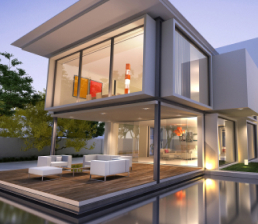Breaking Down the Costs of Building a Home in Fort Lauderdale
Breaking Down the Costs of Building a Home in Fort Lauderdale
Building a home in Fort Lauderdale is an exciting adventure, but it also requires careful financial planning. The process involves numerous costs, each contributing to the overall budget. Whether you are a first-time builder or looking to upgrade your living space, understanding these expenses can help you make informed decisions.
When you embark on constructing a new home, the first step is acquiring and preparing the land. This not only includes the actual purchase but also tasks like clearing the site and ensuring it’s ready for construction. Each of these steps comes with its own set of costs that can add up quickly.
The materials and labor required to bring your vision to life form a significant part of your budget. From the foundation to the roof, every element has a price. Knowing what to expect in terms of material costs and labor fees can help you allocate your funds more efficiently.
Additionally, navigating the permitting and inspection process is an essential part of building in Fort Lauderdale. These fees ensure your home meets local building codes and safety standards. Overlooking this step can lead to costly delays or fines.
Furthermore, hidden costs often sneak up on builders. These can include unexpected changes, additional features, or unforeseen issues that arise during construction. Being prepared for these can help you stay within budget and avoid financial strain.
This article will break down the various costs involved in building a home in Fort Lauderdale, offering you a comprehensive guide to help you budget effectively and achieve your dream home.
Land Acquisition and Preparation Costs
Acquiring land is the first major step in building a home in Fort Lauderdale. The cost of land can vary widely depending on the location, size, and desirability of the plot. In urban areas or near the coast, land prices tend to be higher. It’s important to budget for these differences and choose a location that fits both your needs and your financial plan.
Once you have purchased the land, you will need to prepare it for construction. Land preparation involves several tasks, including clearing vegetation, grading the land to ensure it is level, and possibly even demolishing existing structures. Each of these tasks requires specialized equipment and labor, contributing to the overall cost.
Additionally, soil testing is a crucial step in land preparation. This process determines the soil’s suitability for building and can identify any issues that need to be addressed before construction begins. Problems like poor soil quality or buried debris can increase preparation costs. Being aware of these potential expenses can help you allocate your budget more effectively.
Material and Labor Expenses
The materials and labor required for building your home constitute a significant portion of your budget. Each phase of construction, from laying the foundation to installing the roof, involves specific materials. Common materials include concrete, lumber, insulation, and roofing. The quality and type of materials you choose can affect both the initial cost and long-term maintenance expenses.
Labor costs vary depending on the complexity of the project and the expertise required. Specialized tasks like electrical work, plumbing, and HVAC installation require skilled professionals, which can drive up costs. It’s essential to hire qualified contractors to ensure the work is done correctly and safely.
Here’s a list of typical expenses for materials and labor:
1. Foundation: Concrete and rebar, along with the labor to pour and set them.
2. Framing: Lumber and labor to build the structural framework of the house.
3. Roofing: Shingles, tiles, or metal roofing materials, plus labor for installation.
4. Exterior Finishes: Siding, stucco, or brick, along with labor to apply these materials.
5. Interior Finishes: Drywall, paint, flooring, and other interior materials and the labor to install them.
6. Systems Installation: Electrical wiring, plumbing, and HVAC systems, including both material and labor costs.
Understanding material and labor expenses helps you plan your budget more effectively and choose options that meet your goals without overspending. Having a clear picture of these costs ensures a smoother construction process and helps avoid financial surprises down the line.
Permitting and Inspection Fees
Permitting and inspection fees are crucial costs that you need to factor into your budget when building a home in Fort Lauderdale. These fees ensure that your home complies with local building codes and safety standards, which protect both your investment and the community.
First, you’ll need to obtain various permits before construction can begin. These permits can include building permits, electrical permits, plumbing permits, and more. Each permit has an associated fee, and the total cost can add up quickly. It’s essential to research the specific permits required for your project and their respective costs.
Once you have the necessary permits, ongoing inspections are required throughout the construction process. Inspectors verify that each phase of construction meets the required standards. This includes inspections for the foundation, framing, electrical systems, plumbing, and final occupancy. Each inspection often comes with its own fee, contributing to the overall cost.
Failing to secure the proper permits or pass inspections can result in fines and delays, making it critical to budget for these expenses upfront. Properly planning for these fees will help you avoid unexpected financial setbacks and keep your project on track.
Hidden Costs and How to Budget for Them
Hidden costs can sneak up on any homeowner building a new home, leading to budget overruns and stress. Identifying these hidden expenses early on can help you stay within your financial plan. Some common hidden costs include unexpected site issues, changes to the original design, and additional features that were initially overlooked.
Unexpected site issues are a significant contributor to hidden costs. For instance, you may encounter soil problems that require additional foundation work or discover the need for extensive grading. These issues can delay your project and increase your expenses.
Changes to the original design can also lead to increased costs. As construction progresses, you might decide to upgrade materials, add custom features, or make modifications that weren’t in the initial plan. While these changes can enhance your home, they also come with additional expenses.
Here are some tips to manage hidden costs:
1. Contingency Fund: Set aside a percentage of your budget (usually 10-15%) for unforeseen expenses.
2. Detailed Planning: Work closely with your builder to create a detailed plan and budget, minimizing changes during construction.
3. Transparent Communication: Maintain open communication with your construction team to stay informed about potential issues and costs.
By anticipating hidden costs and setting up a contingency fund, you can manage your budget more effectively and ensure a smoother construction process.
Conclusion
Building a home in Fort Lauderdale involves many components, from land acquisition to hidden costs. By understanding these different expenses, you can plan more effectively and avoid financial pitfalls. Proper budgeting helps ensure that every aspect of your construction project runs smoothly and within your means. At the end of the day, a well-planned budget is crucial for achieving your dream home without unnecessary stress.
Every penny spent on permits and meticulous planning ensures that your investment is protected and aligns with local standards. Recognizing and preparing for hidden costs also saves you from unexpected financial surprises.
At A.N.O Quality Construction, we strive to provide transparent and detailed information on our construction services to help you navigate your home-building journey. If you’re ready to take the next step in building your Fort Lauderdale home, contact A.N.O Quality Construction to get started on crafting your dream abode.
Recent Comments
RECENT POSTS
#HELLIX








